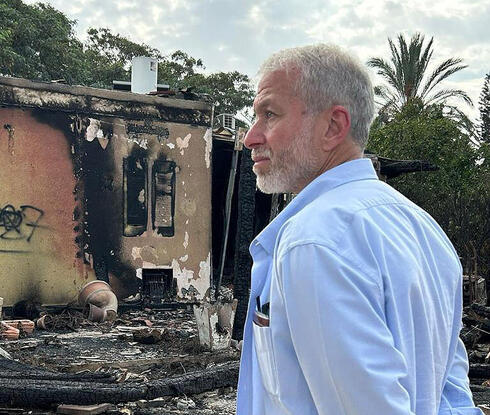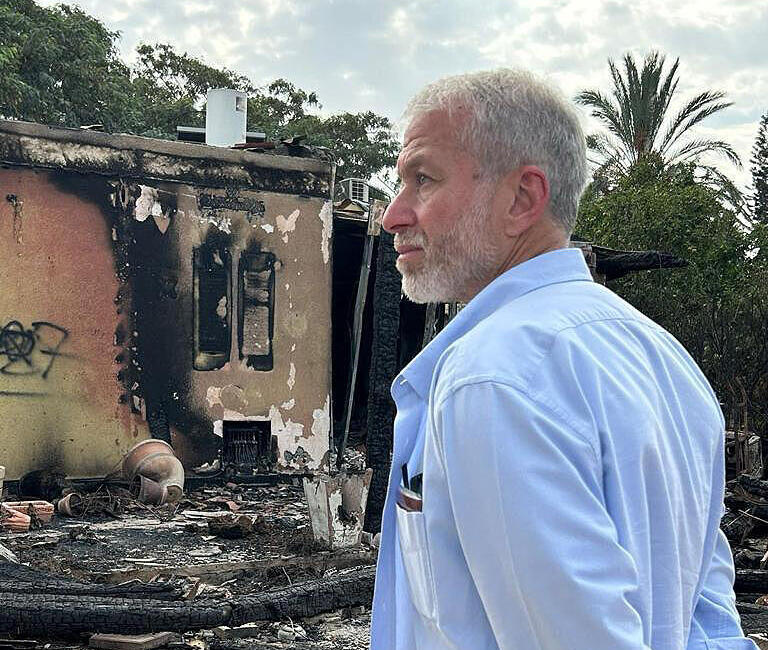
Judge says bank "unreasonable" in blocking Abramovich's $2.2 million donation from frozen account
Russian businessman demands Bank Mizrahi Tefahot unfreeze his account and allows him to make a NIS 8 million donation to ZAKA, a volunteer organization that has been at the center of the effort to recover the bodies of hundreds of civilians following Hamas’ murderous attack. The judge requested summaries from both parties before issuing a decision
Businessman Roman Abramovich and the ZAKA organization faced off against Bank Mizrahi Tefahot on Thursday in a lawsuit over the alleged prevention of an NIS 8 million ($2.2 million) donation. The claim contends that the bank is obstructing the funds' transfer from Abramovich to ZAKA. The bank, however, argues that it is a reasonable refusal, with Abramovich’s account being blocked due to sanctions imposed on him by the European Union and the British government.
Abramovich’s lawyers are arguing that the Israeli government has not imposed any sanctions against the businessmen following the war in Ukraine, and neither has the U.S. government, and therefore the blocking of the account is fundamentally wrong and lacks any legal basis. The lawsuit also asserts that Abramovich, an Israeli citizen, opened the bank account years ago, and the money intended for donation to ZAKA was deposited in the account at the time.
Judge Yardena Seroussi criticized the bank's sweeping refusal, deeming it “unreasonable” and highlighting its potential impact on ZAKA during a major crisis. She expressed her initial opinion that allowing the donation would not violate any of the sanctions.
Attorney Sharon Lubezky, representing the bank, emphasized the bank's willingness to transfer funds to ZAKA but justified the refusal, stating that the decision was carefully considered to avoid substantial damage to the bank, its customers, and the State of Israel.
Abramovich's attorneys called the bank's actions absurd, pointing out that the bank is applying sanctions more comprehensively than required. They argued that Israel has not joined the European sanctions and that the bank should allow the transfer of funds for philanthropic purposes.
After the October 7th attack, Abramovich visited some of the sights of the Hamas massacre and decided to donate to ZAKA.
Bank Mizrahi Tefahot, in its court submission, stressed its efforts to aid victims of the terrorist attack by Hamas and its commitment to comply with sanctions regimes. The judge requested summaries from both parties before issuing a decision.
ZAKA was established over thirty years ago following the wave of bus bombings and suicide attacks during the Second Intifada. ZAKA volunteers work under the Israeli Police and are considered to be police volunteers. They typically focus on recovering the bodies of civilians, working alongside an army unit responsible for recovering bodies of soldiers and other state personnel including police.














